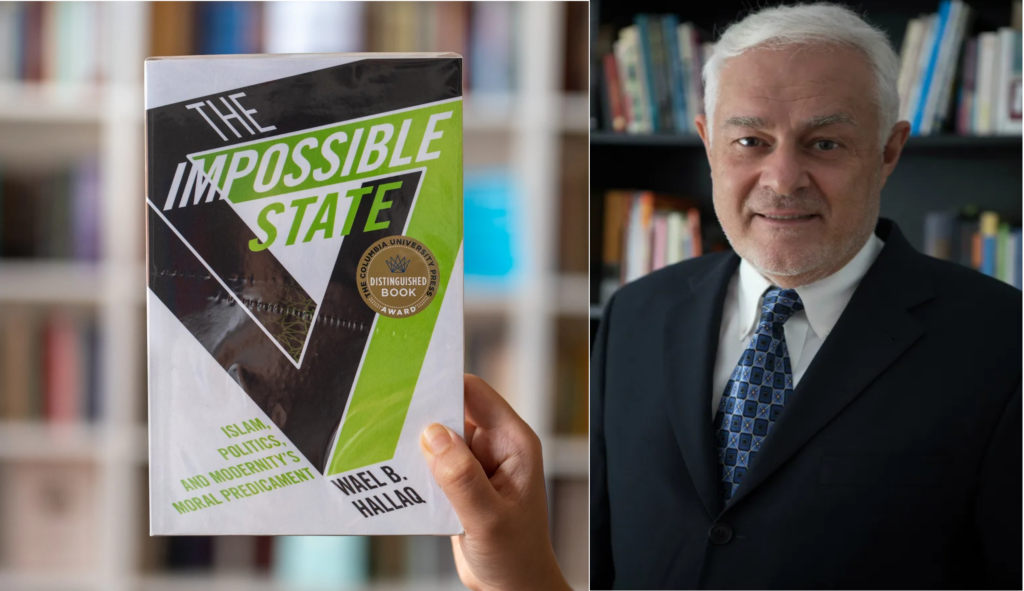
I distinctly remember sitting on a bus with my Mushaf (copy of the Qur’an) open in front of me. I was seated next to someone I had never met before on a journey as part of a trip for the Islamic society at my university, and we were waiting for the remaining attendees to board. After a few minutes, he noticed that the Mushaf I was reading had annotations and translations, and he politely asked me how I could be reading the Qur’an with translation. I was surprised at the line of questioning and said, why would you not read the Qur’an without understanding it?
He replied, but surely the Qur’an is so complex, how can you be sure you won’t misunderstand and deviate from the right path? I countered that since I already speak and understand Arabic, I can’t help but understand at least some of the Quran already during recitation. This concluded this topic of conversation and as the journey continued, we started discussing various other things. I later learned that this was a commonly held opinion, primarily in the subcontinental countries (India, Pakistan, and Bangladesh).
The issue goes deeper than this though. While it is true that only a small minority of Muslims would actively discourage reading the Qur’an with translation, very few Muslims actively read the Qur’an with translation. There are few statistics on this, but just anecdotally, how many of the people we know have even read the Qur’an cover to cover with translation even once. Yet most of us will have completed many recitations of the Qur’an (sometimes multiple times in a single Ramadan).
As I have traveled a few times and interacted with more Muslims across different countries, I realized that there were a huge number of misperceptions held by Muslims about certain opinions, often on very basic things clearly articulated in the Qur’an, and certainly not to be expected from someone who has recited the Qur’an at least 50 times (most of these people did multiple completions a year). The problem was, they had never actually understood the message that they were reciting.
It’s not that these people were not intellectual in their approach to religion. They will study books on scripture, even prepare lectures and sermons, and on occasion, will read portions of the Qur’an with translation. However, their primary method of engagement with the Qur’an remains reading the Qur’an in Arabic, with a good recitation voice granted, but with zero understanding or engagement.
The conversation around this usually turns into a discussion on one of two primary defenses of reading the Qur’an in Arabic.
-
- Reading the Qur’an in Arabic has some specific blessings and power.
-
- You get the 10 hasanaat per letter award in Arabic only.
Firstly, the above-mentioned points do not apply to people who for whatever reason are unable to read the translation, to begin with, nor to those who lack the capacity to engage with the Qur’an on a deeper level. For such people, it should not even be a conversation. They are also referred to by Maulana Maududi in his short lectures on hadiths regarding the virtues of the Qur’an1.
It’s also important that we are basing our opinions not on one or two singular opinions, but on the overall correct opinion based on all of the teachings and practice of the Sahaabah and the overall gist of the Qur’anic message.
For point 1 above, there is a back-and-forth conversation about this, with opinions on either side. I have shared an article below that primarily summarizes the argument, and makes the case very much that there is no specific value to reciting in Arabic, including going through all the hadeeth conversations and drawing upon classical sources.2
Fundamentally though, for me, it is a very simple conversation. If I have 20 minutes a day to read Qur’an, why would I use this limited opportunity to just mindlessly read, when the benefit from understanding is many times greater, and I can actually engage with the message and deeply think about it for hours to come. If I have a few hours, sure, after completing a session of contemplative reading, I might switch to a recitation in Arabic (focusing on the science of maqamaat and beautifying the recitation if I so wish). Therefore, the conversation is not about whether or not there is any benefit to reciting the Qur’an in Arabic without understanding, it’s simply that reading with understanding is so much better, that it just makes more sense to prioritize reading with translation.
Even with the recitation, for one to do this properly and emphasize the right words and have the correct tone, it would work better if they know what the overall message behind the verses was. It is quite unsettling when you go to a Masjid and the reciter is beautifully reciting in a very uplifting and positive tone verses about Allah’s wrath and the punishment that will be faced by certain groups for their disobedience.
One of my Indian teachers told us of an incident of visiting a Masjid for Taraweeh, and the Imam had started the story of Prophet Yusuf (A.S). He continued till the prophet was in the well, and then ended the taraweeh. One of the attendees, who spoke Arabic, angrily berated the Imam for leaving the prophet in the well. He had inadvertently ended the salah for the night on a cliffhanger.
This also translates into how the modern Mushaf is organized. Dr. Israr Ahmad breaks this down in detail in his Urdu language introduction of an overview of the Quran3. He states that the companions divided the Qur’an into 7 or 10 portions, which is done very thematically, and even the Rukoo system shown in the most common Mushafs in the subcontinent takes meaning into account, however, the 30 para/juz system completely ignores the meaning behind it and is a much more modern take. Both the rukoo system, and the 7 and 10 portions all accounted for the meaning, showing clearly that classical Muslims were much more interested in the meaning than we are.
There are many other arguments that I can make about this issue, and the effects this has on Muslims globally, particularly in the West, where the lack of understanding of the Qur’an within the populace is affecting our dawah, the rate of apostasy, our confidence, and even our ability to succeed in the dunya.
There is a hadeeth reported in Ibn Maajah4 where the prophet (SAW) mentioned to a Sahaabi the case of Jews and Christians who read the Torah and the Gospel, yet do not act upon them.
I will simply end with the following excerpt from Surah Baqarah, where the Qur’an is addressing the people of the book (The Qur’an repeatedly tells us not to repeat the same mistakes as the people of the book).
Surah Baqarah, Ayah 78
Some of them are uneducated, and know the Scripture only through wishful thinking. They rely on guesswork.
MAS Abdel Haleem Translation
It’s up to us to decipher if we have fallen into a carefully and slowly crafted trap of the Shaitan, as despite many of us reciting the message of Allah constantly and in beautiful melodies, or wearing it in taweezes (amulets) around our necks, we remain blissfully unaware of the most important thing of all, that is, what does the message actually say to me?
1.Fazail e Quran Pg 21-22, https://www.facebook.com/inside.mardan/photos/a.2168264400069821/3020257871537132/?type=3
2.http://nizami.co.uk/is-there-barakah-in-the-sounds-of-the-quran/
3. https://www.youtube.com/watch?v=j7-pVr2G-6w&list=PL3409302896110747
4. https://hadeethenc.com/en/browse/hadith/65045#:~:text=Ziy%C4%81d%20ibn%20Lab%C4%ABd%20




